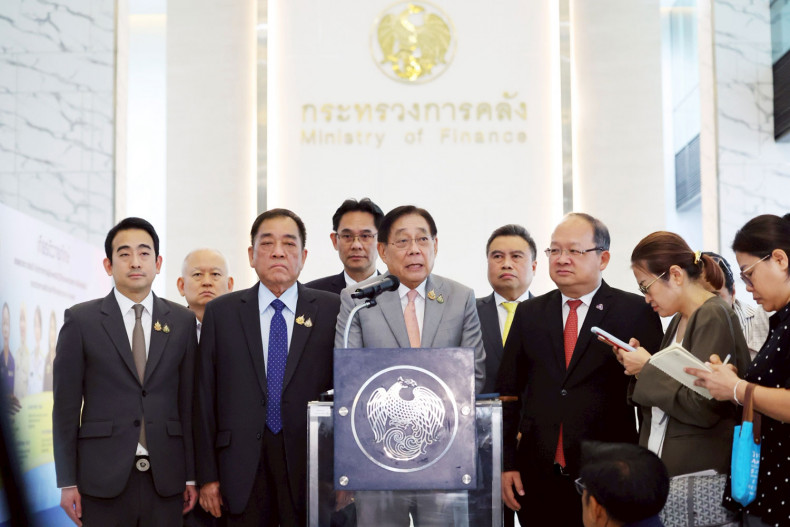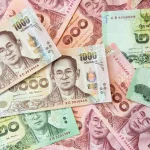Photo Credit: Ministry of finance
Thailand must urgently reduce its trade surplus with the US by any means necessary, according to Finance Minister Pichai Chunhavajira.
He emphasized the need for Thailand to increase imports from the US in key sectors with significant demand, such as agricultural products, automobiles, electronics, and liquefied natural gas (LNG), which is used for electricity generation.
In agriculture, Mr. Pichai pointed out that Thailand must accept its dual role as both an exporter and importer. Changes in local production have led to the necessity of importing raw materials for processing agricultural products, including animal feed and food for consumers.
He also highlighted Thailand’s potential in the global canned tuna industry, noting that the current raw tuna supply is inadequate, necessitating imports.
Thailand could import tuna from the US for processing and then export it not only to the US but also to other international markets, thereby maximizing the utilization of existing cold storage and processing facilities, according to Mr. Pichai.
On the topic of LNG, he mentioned that while Thailand produces gas in the Gulf of Thailand and imports it from Myanmar and other nations, these reserves are diminishing.
The US has a plentiful supply of LNG at competitive prices, and purchases from that market should be made at reasonable costs, he stated.
“Reducing the trade surplus with the US to a level that they find acceptable is crucial. The closer we can get to zero, the better. This can be achieved in two ways: by maintaining the same level of bilateral trade volume and increasing imports from the US,” Mr. Pichai explained.
He added, “We aim to grow the economy by increasing both imports and exports.”
Mr. Pichai described the significant and complex impact of US tariff increases, noting that these tariffs have international repercussions affecting both Thailand and the US, as well as Thailand’s trade relations with other countries that also engage with the US, creating a multi-layered effect.
He warned that failure to address this issue could adversely affect Thailand’s GDP, leading to job losses and a decline in exports.
Moreover, he indicated that retaliatory measures are not the right solution, as Thailand is a small nation, and mishandling the situation could potentially reduce the country’s GDP by at least 1 percentage point.





